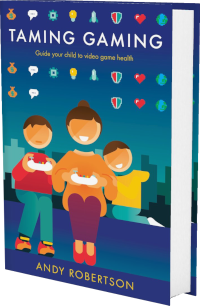 Android
Android iOS
iOS Mac
Mac Switch
Switch Wii
Wii Wii U
Wii U PC
PC PS4
PS4 PS5
PS5 Xbox One
Xbox One Xbox X|S
Xbox X|SWe've documented 27 accessibility features for The Magister, including Adjust Speed, No Quick Reactions, No Button Combos, No Repeated Pressing and No Holds. Its accessibility is strongest in Controls and Visual but it also has features in Navigation, Getting Started, Reading and Audio to reduce unintended barriers.
This report is created with input from accessibility experts and the player community to help people find games that have the accessibility features they require. Once you have found potential games on the database, there are excellent specialist accessibility sites that offer in-depth reviews to guide your purchasing decisions.
Our accessibility examiner, Angela Hickman Newnham, first checked The Magister accessibility 2 years ago.
 Accessibility Notes
Accessibility Notes
You can see when it will be your turn again by looking at the turn timer, and how playing cards will affect that. If you stop doing anything, once the opponent has caught up to where you are at in time, the game will wait for you yo take your next action before moving forward again.
Some missions are time critical and can not be repeated, but you have the option for how to spend your days and the world map always shows you the current time of day and what locations you can travel, which helps reduce the cognitive load.
The is no controller map in combat or tactical diplomacy modes, and no ability to remap buttons for keyboard or controllers.
 Game Details
Game Details
Release Date: 16/06/2020, updated in 2021
Out Now: PC and Switch
Genres: Brain Game, Fighting (Communication, Narrative, Point-and-Click, Puzzle, Role-Play and Strategy)
Accessibility: 27 features
Components: 2D Side-On and Day and Night
Costs: Purchase cost
 Controls
Controls
We've documented 7 accessibility features for Controls in The Magister which deal with how you control the game, different options for alternative inputs and whether you can remap these settings to suit your needs.
Gamepad
Can play with the following:
Multiple Buttons & Single Stick: Can play with multiple buttons and a stick.
Mouse And Keyboard
Can play with the following:
Mouse Alone: Can play with just the mouse/mouse-button/mouse wheel.
Touchscreen
Can play with the following. Additional gestures may be required for games played with a screenreader like VoiceOver.
One Tap Targeted: Can play with touchscreen, tap in specific locations.
Button Combinations
Specific button operation required to play
Holding Down Buttons Optional: Holding down buttons for prolonged periods (a second or more) is not required or can be switched to toggling the action on and off. This is in addition to the movement stick/button which is not considered a hold for this purpose.
Rapid Repeated Pressing Optional: Quick, repeated button pressing (more than 2 times a second) is not required, can be skipped or switched to holding a button to trigger a repeated action.
No Simultaneous Buttons: Only one button or key required at a time, in addition to direction stick(s).
Controller Vibration
Vibration Optional: Controller vibration not used in the game or you can disable it.
Similar Games With More Accessibility Features for Controls
If you want to play The Magister, but it doesn't offer the Controls accessibility features you require, these similar games extend the Controls accessibility:
- Phoenix Wright Ace Attorney (10 Controls Features)
- The Big Con (8 Controls Features)
 Difficulty
Difficulty
We haven’t documented any accessibility features for Difficulty in The Magister which deal with how you can adjust the challenge of play, and whether this is locked once chosen or can be adjusted as you play. The following games are similar to The Magister, and offer accessibility features for Difficulty:
- The Murder of Sonic the Hedgehog (2 Difficulty Features)
- Black Book (2 Difficulty Features)
- Griftlands (2 Difficulty Features)
 Getting Started
Getting Started
We've documented 4 accessibility features for Getting Started in The Magister which deal with what support is offered to get started with the game. This includes customising the experience when you first open the game via any onboarding processes it provides as well as tutorials and other assistance when you first start playing.
Assistance Getting Starting
These features aid your play of the game in terms of cognitive load on learning controls, dealing with pressure and coping with the environment and challenges.
Tutorials: There are helpful tutorials and instructions on how to play. Information is provided in a timely manner, with appropriate level of detail.
Reaction-Time Not Critical: Individual game actions don’t need quick reactions, or there are settings to lower the requirement for quick reactions. This means you don't need to quickly press a button in response to an on-screen prompt, target a fast-moving target or skillfully complete a scenario against the clock.
Adjust Speed: Adjust the speed of the game at critical moments or throughout, or rewind play for a second attempt, to ease reaction times. By slowing the game, you have more time to interpret what is happening and then execute your actions. It also reduces the pressure on getting things right quickly or the first time you attempt them.
No Jump Scares: No sudden loud noises or popping-up scary visuals that unexpectedly appear without warning, or the option to disable them.
Similar Games With More Accessibility Features for Getting Started
If you want to play The Magister, but it doesn't offer the Getting Started accessibility features you require, these similar games extend the Getting Started accessibility:
- Tangle Tower (10 Getting Started Features)
- Frequency Missing (7 Getting Started Features)
- Griftlands (6 Getting Started Features)
- The Murder of Sonic the Hedgehog (5 Getting Started Features)
 Reading
Reading
We've documented 3 accessibility features for Reading in The Magister which deal with how much reading or listening comprehension is required, how well the game provides visual and audible access to the text and whether subtitles and captions are a good fit for purpose.
Reading Level
How much reading is required to play the game's main path or story and how complex the language is. The presence of voiced characters doesn't reduce this requirement, as it's recorded as a separate datapoint.
Moderate Reading: Moderate reading required. The quantity and complexity of reading are at a level that a high school student (14-year-old) would appreciate.
Text Visibility
High Contrast Text: Text colour contrasts to the background or can be adjusted to be. The text in menus, instructions and other information is presented in high contrast with a solid background.
Subtitles
All Speech Subtitled (Or No Speech In Game): All spoken content has subtitles, or there is no speech in the game. This means there is no requirement to hear spoken dialogue or narrative to play the game.
Similar Games With More Accessibility Features for Reading
If you want to play The Magister, but it doesn't offer the Reading accessibility features you require, these similar games extend the Reading accessibility:
- Pentiment (6 Reading Features)
- Tangle Tower (6 Reading Features)
- The Murder of Sonic the Hedgehog (5 Reading Features)
- The Big Con (5 Reading Features)
 Navigation
Navigation
We've documented 6 accessibility features for Navigation in The Magister which deal with how the game provides guidance and assistance to navigate its worlds. These are only for games that have traversal and exploration in 2D and 3D spaces.
Clarity
Large Clear Navigation: The in-game navigation and maps are clear to read. They offer large text and offer markers that are large and of high contrast. Where text or information is small, there are settings to zoom-in and increase visibility.
Clear Mission Objectives: The game provides clear, structured missions with directional guidance and advice on which can be attempted next. This also indicates (ideally on maps where they are provided) which missions can't be attempted because you do not have the appropriate items yet.
Visual Directional Cues: Additional in-game visual cues that signpost where to go next and how close you are to arriving. This can be with camera movement to focus on your destination or important items. It can use light, breadcrumb trails, in-world pointers to identify your mission's target location.
Head-Up Display
Game Map: View a map of the game world during play, with the landscape, points of interest and missions highlighted throughout the entire game. This enables the orientation of the player and the world, confirming a direction of movement and the location of destinations or points of exploration.
Menu Navigation
Menu Audio Cues: Navigating menus provide an audio cue for each selection.
Menus Don't Wrap: Menus don't wrap and stop the cursor at the bottom of the list if you press down. Or menus do wrap but make it clear that you are back at the top of the list with sound or narration.
 Visual
Visual
We've documented 7 accessibility features for Visual in The Magister which deal with how you can adjust the visuals to suit your needs, and offer additional information if you can't hear the game.
Contrast
Medium Contrast: Game uses generally well contrasting and bright visuals, or has a slider to make this the case.
Interactive Elements
Outline Interactive Elements: Characters, platforms and enemies can be outlined or highlighted for visibility. This can be with a large border around the character or a special visual mode that adjust the colour to make characters more visible.
Visual Distractions
No Flashes: No flashing strobe effects or you can disable them. This includes the absence of flashing from dramatic visual effects, explosions or weather effects like lightning.
No Screen Shake: No screen shake effect or it is included but it can be disabled. This includes the absence of screen shake for dramatic effect as well as to indicate hits on a target.
Audio Cues for Visual Events
Audio Cues for Visual Events: Audio is provided to indicate visual events. Game events or progress highlighted by visual icons, effects or animations are also accompanied by audio to signify that progress. This is useful for blind players.
Menu Audio Cues: Navigating menus provide an audio cue for each selection.
Motion Sickness Friendly
Motion Sickness Friendly: Doesn't have 3D movement elements that may trigger motion sickness, like motion blur, depth of field and field-of-vision. Or includes the ability to disable motion blur, depth of field and field-of-vision effects.
Similar Games With More Accessibility Features for Visual
If you want to play The Magister, but it doesn't offer the Visual accessibility features you require, these similar games extend the Visual accessibility:
- Knights of San Francisco (8 Visual Features)
- Griftlands (8 Visual Features)
- Frequency Missing (8 Visual Features)
 Audio
Audio
We've documented 1 accessibility feature for Audio in The Magister which deals with how you can adjust the audio of the game and whether audio cues compensate for aspects of the game that are hard to see.
Adjustable Audio
Balance Audio Levels: Set music and game sound effects separately. This enables you to select your preference as well as ensure critical game sounds aren't obscured by other audio.
Similar Games With More Accessibility Features for Audio
If you want to play The Magister, but it doesn't offer the Audio accessibility features you require, these similar games extend the Audio accessibility:
- The Murder of Sonic the Hedgehog (2 Audio Features)
- Town of Salem (2 Audio Features)
- The Case of the Golden Idol (2 Audio Features)
- The Big Con (2 Audio Features)
System Accessibility Settings
In addition to the accessibility features provided in the game, you can also use system-wide accessibility settings:
Nintendo Switch
Nintendo Switch has some built-in features, including a lockable zoom, that can be used on all games.
PC
Windows has extensive accessibility features. Some, like colour correction, work with games. Lots of accessibility software can be used with PC games, from voice recognition to input device emulators.
Read more about system accessibility settings.
Accessibility Report supported by VSC Rating Board, PlayabilityInitiative and accessibility contributors Angela Hickman Newnham












